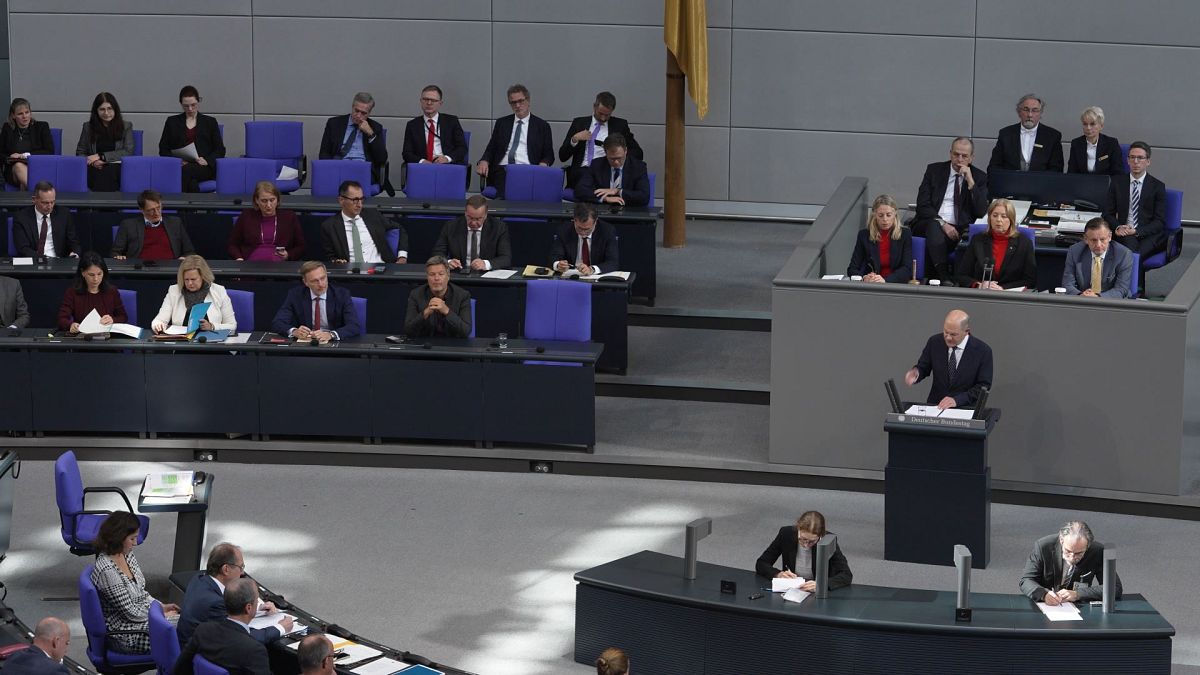Chancellor Olaf Scholz defended the German government’s position on foreign and economic policies in the Bundestag ahead of his meeting with the European Council in Brussels later this week.
The German Chancellor is due to travel to Brussels later this week along with other EU leaders to discuss migration and the continuation of weapon support for Ukraine and Israel, amongst other topics.
Migration is expected to be at the top of the agenda during the two day summit, after Poland announced plans to suspend asylum claims and Italy has begun sending its first migrants to a processing centres in Albania. Germany also introduced mandatory controls at all of its land borders last month.
Other topics expected to be discussed at the meeting include support for Ukraine as Hungary continues to block billions earmarked for military aid assistance, the Middle East and how competitiveness in the EU can be boosted.
Chancellor Olaf Scholz stressed that he is open to speaking with Russian President Vladimir Putin, but said he would never make decisions about the future of Ukraine over the heads of the Ukrainians.
He also confirmed that support for Ukraine would continue into the future, as experts have warned that support for Ukraine could dry up depending on the result of the US election next month. Germany is one of the biggest supporters for Ukraine, after the US. The EU has pledged €35 billion in aid.
On the topic of tensions in the Middle East, he reiterated the need for a ceasefire, but said Israel would always have Germany’s support. He said Israel can rely on weapons deliveries, but underlined that humanitarian aid for Gaza is needed. The German leader warned that Iran is “playing with fire” regarding its attacks on Israel.
Scholz also promised to meet with Germany’s top business associations and industry unions this month with a view to solving German industrial problems. He criticised the EU’s new tariffs on Chinese electric cars and said that Germany needs to build the best cars, and compete globally.
Scholz also advocated for modernisation and dismantling of bureaucratic processes – something EU Commission President Ursula Von der Leyen has said she is also committed to at an EU level.
With the federal election scheduled for Autumn next year, it seems like Scholz and his government face an uphill battle to turn the promises into reality before then.
(Except for the headline, this story has not been edited by PostX News and is published from a syndicated feed.)

